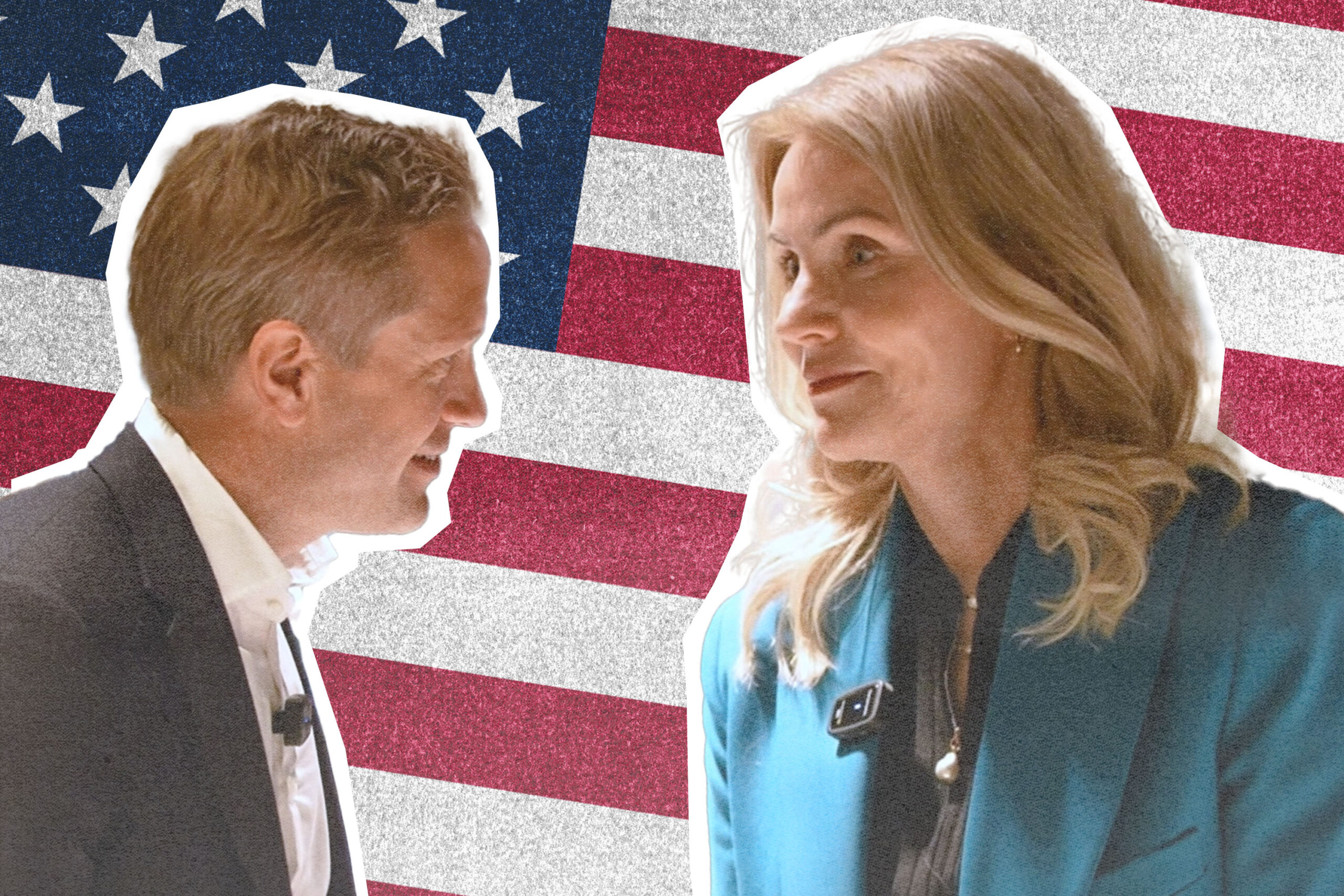Get the newest insights
Let us know your interests and get the most relevant reports, articles and events delivered straight to your inbox!
Sign up here
The American election is just around the corner, and the outcome of the election holds importance for not just the US, but also the rest of the world. But how and why? Christian Jensby, CEO of Deloitte Denmark, caught Helle Thorning-Schmidt, politician and former Prime Minister of Denmark, for a brief talk on why Danish companies and their leadership teams must integrate geopolitical matters in their discussions.

Companies face a larger task list than ever before. In a globalised world, geopolitical matters must be brought up to discussion in the leadership teams and boardrooms.
Navigating geopolitical issues entails being aware of what happens in the world, and discussing what repercussions these events could have on your business.
One plausible scenario of the election in case Donald Trump wins, is new import tariffs that would indirectly threaten the amount of welfare Denmark can provide.
Being a successful modern company can be quite the cumbersome task. Navigating global crises and questions on climate and sustainability, keeping up with technologic development, and utilising AI advancements are just a few of the tasks at hand.
In other words, the complexity of our world has been increasing for some time, and as Christian Jensby puts it, “Today, the C-suite faces a much larger curriculum.” As an interconnected and global world, this also includes being increasingly geopolitically aware, and points us in the direction of why C-suite leaders and boardrooms should keep an eye on the American election.
For, according to Helle Thorning-Schmidt, this hold importance to both Denmark in general, the Danish companies, and the leadership teams in those companies: “We know that the American election will influence American consumers, but it could also influence the Danish consumers and the businesses that conduct business in the American market.”
“Ten years ago, the discussions in the boardroom mainly focused on economic surplus, avoiding the worst crises, and staying clear of negative rumors. Today, we also discuss subjects like geopolitics because we know that the American election will influence American consumers, but it could also influence the Danish consumer and the businesses that conduct business in the American market.”
Helle Thorning-Schmidt, politician and former Prime Minister of Denmark
While the geopolitical scope may not come as a shocking discovery nor present itself as a recently emerged concept, it remains evident that geopolitical issues hold consequences for both interest rates, inflation, consumer trust and many other relevant themes that boardrooms should consider. Therefore, company leaders need to find a way to navigate these issues.
“We must be aware of the risks when investing in, for instance, China or the US. It doesn’t mean that we should stop investing, but we must understand that deglobalisation can be expensive for us as Europeans, that a higher level of conflict in China should make us reconsider our engagement in China, and that the American election can, of course, affect the American economy. Boards should at least understand this and have these discussions in the boardrooms. And in my experience, this is also very much the case at the moment,” Helle Thorning-Schmidt says.
“Geopolitics is beyond our control, yet vital to plan according to. That is one of the worst possible scenarios to be experiencing as a board. Even the smallest company in Denmark with a global mindset must take these things into consideration because it affects everything, from interest rate to inflation to consumer trust. So, a lot of the things we discuss in the boardrooms will be affected by geopolitical trends. Still, it is important not to be overwhelmed by it, because we cannot control the entire world. The important part is to have the discussions in the leadership teams and boardrooms.”
Helle Thorning-Schmidt, politician and former Prime Minister of Denmark
On the final remarks in the talk, Christian Jensby asks Helle on what it would mean for Denmark – one of the smallest, most open economies in the world that is heavily reliant on international trade – if Trump wins the election and impose tariffs on imported goods – and what scenarios it opens up for?
“Trade and the open global market mean an enormous amount to Denmark and are actually the key to our wealth, and thereby also our welfare. So, anything that moves towards deglobalisation or the absence of a large global market, as we have now, will naturally come at a cost for Denmark,” she replies and adds:
“It will cost in terms of us having to pay more ourselves for the things we want – in Europe, we want welfare, we want security, we want better climate solutions. There are many things we want in Europe, but if the world becomes more deglobalised, then things will become much more expensive.”
Let us know your interests and get the most relevant reports, articles and events delivered straight to your inbox!
Sign up here